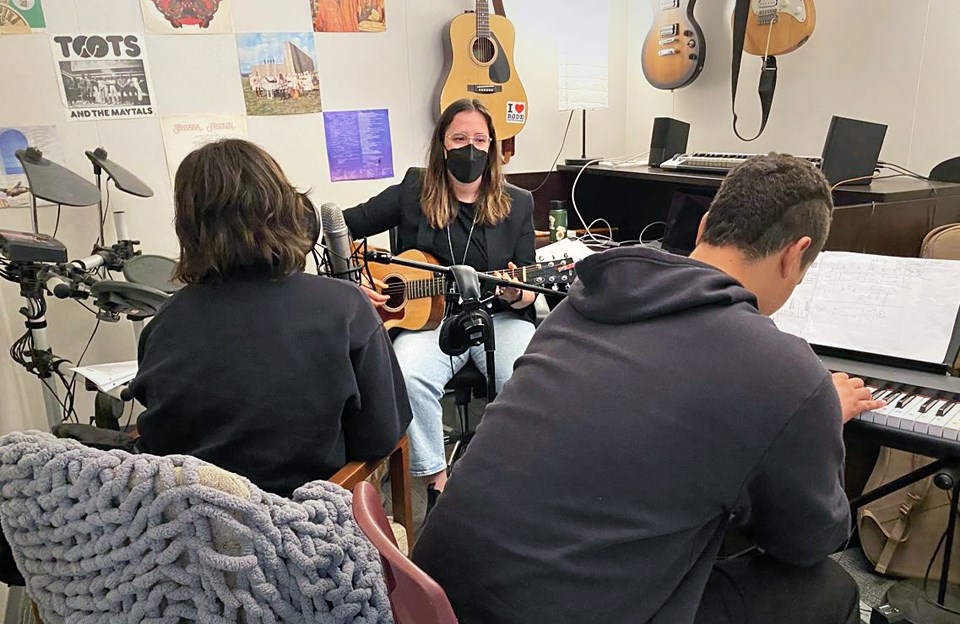Music therapy is making a difference in the lives of more students in the Burnaby school district’s alternate education programs this year.
The idea of music therapy for kids who’ve struggled to find success in traditional classroom settings was first test-run in September 2019 in the district’s Learning Pathways programs for Grade 10 to 12 students.
It didn’t take long for school officials to see results.
Every time the sessions were offered, attendance spiked, according to Nick Christofides, district principal for safe and caring schools.
“We saw increased student engagement and attendance, especially on the days when this was happening,” he said. “In some cases, we had students that hadn’t really felt connected to school, maybe in a long time and maybe not ever.”
Student and staff feedback was positive too, according to Christofides, with staff who aren’t in the music therapy program saying the students were more regulated and engaged.
Music therapy
During the sessions, which can be one-on-one or in small groups, students can listen to music and reflect on it, learn to play an instrument, write and record songs, lay down beats, produce songs and more.
“There’s a lot of freedom in it,” said Arielle, a Grade 12 student who’s been taken part for three years. “Anything that we want to do – whether it’s just listening to music or talking about the music industry or the artist, doing recording covers or learning how to play instruments and stuff – it’s completely up to the individual student, which is amazing.”
Arielle plays ukulele and sings and is currently doing a music internship with a local company through the district’s music production and technology program.
She said music allows her to “release a lot of stress.”
But students don’t have to be going into the music business to benefit from the weekly music therapy sessions, according to Felicia Wall, the certified music therapist leading the program.
“I think it’s really, really important for kids to have this outlet, even if it’s not someone like Ari who is incredibly musical,” she said. “Lots of the students have never had any kind of positive affirmation around music or rap or anything like that.”
‘They can turn to music’
The Learning Pathways program hosted two showcase events last year so students could show off their work and new skills in front of staff and family.
More such events are planned for next month.
“There’s something about starting and finishing projects here in music therapy and getting confidence in something like music that makes it so much easier to carry out your other schoolwork by yourself,” Arielle noted. “It gives me a lot more confidence to persevere through the other stuff.”
This year, the district introduced music therapy to the Bridge programs for Grade 8 and 9 students at Burnaby North and Burnaby South secondary schools as well.
Christofides is hopeful the sessions are equipping them with skills they can use both inside and outside of the classroom.
“When they’re stressed, they can turn to music, and not just when (therapy) is happening,” he said. “Now that they’ve learned to make music and pursue writing lyrics and so forth, that’s an outlet for them, and it’s a piece of their self-care.”
Follow Cornelia Naylor on Twitter @CorNaylor
Email [email protected]



